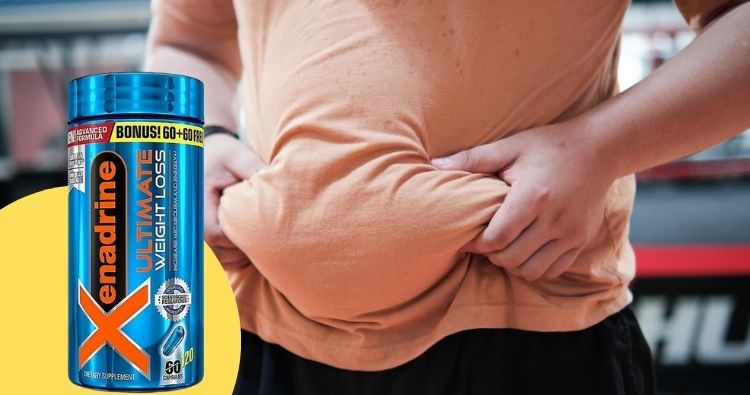Weight loss without consuming alcohol for three months can have a significant impact on your overall progress. In order to accomplish this, it is important to understand the effects of alcohol on weight loss and make a conscious effort to abstain from its consumption.
By eliminating alcohol from your diet, you can reduce calorie intake, improve metabolism, and enhance your body’s ability to burn fat. This article will explore the benefits of a alcohol-free weight loss journey, as well as provide tips and strategies to help you achieve your goals.
So, if you’re ready to take your weight loss journey to the next level, let’s dive in and discover the positive changes that can be achieved by cutting out alcohol.
Understanding Alcohol And Weight Loss
Alcohol and weight loss are often incompatible goals. Cutting out alcohol for three months can aid in weight loss by reducing empty calories and improving overall metabolism. Try a booze-free approach to shed those extra pounds.
Effects Of Alcohol On Weight Loss
Alcohol can have a significant impact on your weight loss journey. While it may be tempting to enjoy a drink or two, it’s important to understand how alcohol can hinder your progress.
One of the main reasons why alcohol can impede weight loss is its high calorie content. Alcohol is packed with empty calories, meaning it provides little to no nutritional value. These empty calories can quickly add up and sabotage your weight loss efforts.
Furthermore, alcohol affects your body’s ability to burn fat. When you consume alcohol, your body prioritizes metabolizing the alcohol over burning fat. This can slow down your metabolism and make it more difficult to shed those extra pounds.
How Alcohol Impacts Metabolism
Alcohol has a direct impact on your metabolism. When you consume alcohol, your body processes it differently than other nutrients. Rather than being stored or used immediately as energy, alcohol is metabolized as a priority by the liver.
The liver breaks down alcohol into acetic acid, which is then burned as fuel instead of stored as fat. This means that when your body is busy metabolizing alcohol, it is unable to efficiently burn fat. In addition, the liver can only process a certain amount of alcohol per hour, so any excess alcohol consumed is stored as fat.
Moreover, alcohol can also disrupt your sleep patterns, further affecting your metabolism. Poor sleep has been linked to weight gain and difficulty in losing weight. Consuming alcohol before bed can interfere with the quality of your sleep, making it harder for your body to properly rest and restore itself.
Benefits Of Cutting Out Alcohol For Weight Loss
Cutting out alcohol for weight loss can be highly beneficial. After three months of abstaining from alcohol, you may experience weight loss due to reduced calorie intake, improved liver function, and decreased appetite. It is a healthier approach to achieving weight loss goals.
Eliminating alcohol from your diet can have numerous benefits when it comes to weight loss. Not only does alcohol add unnecessary calories, but it can also hinder your liver’s ability to function optimally. By cutting out alcohol for just 3 months, you can experience reduced caloric intake and improved liver function, which in turn can contribute to a healthier weight and overall well-being.
Reduced Caloric Intake
Alcoholic beverages are often packed with calories, yet they do not provide any significant nutritional value. By abstaining from alcohol, you can drastically reduce your caloric intake without sacrificing essential nutrients. For instance, a typical 12-ounce beer can contain around 150 calories, while a glass of wine may have an average of 120 calories. By avoiding these empty calories, you can create a caloric deficit that is crucial for weight loss.
Improved Liver Function
The liver plays a vital role in metabolizing fat and removing toxins from the body. However, the presence of alcohol in the system can impede its ability to carry out these functions effectively. By abstaining from alcohol, your liver can focus on metabolizing fats more efficiently, leading to increased fat burning and improved weight loss. Additionally, giving your liver a break from alcohol allows it to regenerate and repair any damage caused by excessive drinking.
Challenges And Strategies For Abstaining From Alcohol
Embarking on a weight loss journey is already a challenging endeavor, but eliminating alcohol from your diet for three months can bring about additional obstacles. However, with the right strategies in place, you can conquer these challenges and successfully abstain from alcohol. In this article, we will explore two key areas: dealing with social situations and coping with cravings.
Dealing With Social Situations
Socializing often involves alcohol, which can make it difficult to stick to your no-alcohol commitment. However, with a bit of planning and mindset shift, you can navigate these situations without feeling left out or tempted to drink.
1. Be Prepared
Before attending a social event, mentally prepare yourself by reminding yourself of the reasons why you have chosen to abstain from alcohol. Visualize yourself enjoying the event without the need for alcoholic beverages. It may also be helpful to have some non-alcoholic alternatives on hand, such as sparkling water with a squeeze of citrus or herbal tea.
2. Communicate Your Intentions
Inform your friends and family about your weight loss journey and your decision to avoid alcohol. Communicating your intentions not only helps you feel accountable but also helps others understand and support your choice. If necessary, suggest alternative activities that don’t involve drinking, such as going for a walk or trying a new hobby together.
3. Seek Support
If you find yourself struggling in social situations, reach out to a trusted friend or family member who understands your goals. Having someone there to offer support and encouragement can make a significant difference in staying committed to your no-alcohol pledge.
Coping With Cravings
Cravings for alcohol can be a common occurrence, especially when abstaining for an extended period. To effectively cope with these cravings, it’s important to have strategies in place that can redirect your attention or help you manage the underlying emotions driving those cravings.
1. Distract Yourself
When a craving arises, distract yourself by engaging in an activity that you enjoy and that requires your full attention. This could be anything from going for a jog, reading a book, or practicing a hobby. By redirecting your focus, you can effectively steer clear from giving in to the craving.
2. Practice Mindfulness
Mindfulness techniques, such as deep breathing exercises or meditation, can help you become more aware of the present moment and tune into your body’s sensations. When a craving surfaces, taking a moment to practice mindfulness can help you identify the underlying emotions and provide the opportunity to address them in a healthier way.
3. Build a Supportive Environment
Surrounding yourself with a supportive environment is essential for successfully abstaining from alcohol. Consider removing any alcoholic beverages from your home to eliminate temptation. Additionally, seek out support groups or online communities where you can connect with others who are also committed to a sober lifestyle, creating a sense of camaraderie and encouragement.
Creating A Healthy Lifestyle Without Alcohol
Embarking on a weight loss journey is often accompanied by lifestyle changes, including cutting out alcohol. While it may seem challenging at first, going alcohol-free can have numerous benefits for your health and well-being. In this article, we will explore how to create a healthy lifestyle without alcohol by discovering alternative beverage options and finding alcohol-free activities that can contribute to your overall weight loss success.
Alternative Beverage Options
When eliminating alcohol from your life, it’s important to find alternative beverage options that can still satisfy your thirst and cravings. Luckily, there are plenty of refreshing choices that will not derail your weight loss efforts. Consider incorporating the following beverage options into your daily routine:
- Water: Staying hydrated is key to a healthy lifestyle. Aim to drink at least eight glasses of water per day to keep your body functioning optimally.
- Herbal teas: Herbal teas such as chamomile, peppermint, or green tea provide a soothing and flavorful way to stay hydrated, while also offering potential health benefits.
- Fruit-infused water: Add slices of your favorite fruits, like lemon, cucumber, or berries, to your water for a burst of natural flavor without added sugars.
- Seltzer water: For those who crave carbonated beverages, opt for seltzer water that is free from added sugars and artificial sweeteners. You can also add a splash of fruit juice for an extra kick of flavor.
- Smoothies: Blend together a variety of fruits, vegetables, and a liquid base like coconut water or almond milk for a nutrient-packed and filling beverage option.
Finding Alcohol-free Activities
Part of creating a healthy lifestyle without alcohol involves finding alternative activities that can replace the time and energy previously spent on drinking. By staying active and engaged in new hobbies, you can make the transition to an alcohol-free lifestyle more enjoyable. Consider the following ideas for alcohol-free activities:
- Exercise: Engage in regular exercise routines, such as walking, jogging, swimming, or joining fitness classes. Not only will it contribute to your weight loss goals, but it will also boost your mood and overall well-being.
- Explore nature: Take advantage of the outdoors by going hiking, biking, or simply taking a leisurely stroll in a park. Connecting with nature can be a great way to de-stress and find inner peace.
- Creative pursuits: Discover your artistic side by trying out activities like painting, pottery, writing, or playing a musical instrument. Engaging in creative pursuits can provide an outlet for self-expression and relaxation.
- Volunteering: Give back to your community by getting involved in volunteer work. Helping others can bring a sense of purpose and fulfillment to your life, while also keeping you busy.
- Socialize sans alcohol: Instead of meeting friends at a bar, suggest alternative social activities, such as going to a coffee shop, checking out local events, or organizing a game night at home. These activities can foster strong connections and create lasting memories without the need for alcohol.
Tracking Progress And Maintaining Weight Loss
When it comes to weight loss, tracking your progress and maintaining your results is essential for long-term success. Setting and monitoring goals, as well as building long-term habits, are important factors in staying on track and preventing weight regain. In this section, we will explore how to effectively track your progress and maintain your weight loss without alcohol over a span of 3 months.
Setting And Monitoring Goals
Setting clear and achievable goals is the first step towards successful weight loss and maintenance. Without goals, it can be challenging to stay focused and motivated. When setting your goals, consider the following:
- Starting weight: Begin by determining your starting weight and the desired weight you wish to achieve.
- Realistic timeline: Set a realistic timeline for your weight loss journey, dividing your goals into smaller milestones to help you stay motivated along the way.
- Diet and exercise targets: Define specific targets related to your diet and exercise routines, such as calorie intake, macronutrient distribution, and frequency of workouts.
Once you have set your goals, it’s time to monitor your progress. Regularly tracking your weight, body measurements, and other relevant factors will help you stay accountable and adjust your strategies as needed. Consider the following tips for monitoring your progress:
- Weigh-ins: Weigh yourself at regular intervals, such as once a week, and record your weight in a journal or a weight tracking app.
- Body measurements: Measure your waist circumference, hip circumference, and other relevant body parts on a monthly basis to track changes in body composition.
- Photos: Take progress photos to visually track changes in your physique over time.
- Journaling: Keep a journal to record your feelings, challenges, and victories throughout your weight loss journey. This can help identify patterns and triggers that may affect your progress.
Building Long-term Habits
While achieving short-term weight loss goals is important, building long-term habits is crucial for maintaining your weight loss over the long haul. Here are some key habits to consider incorporating into your lifestyle:
- Healthy eating: Focus on incorporating whole, nutrient-rich foods into your diet, such as fruits, vegetables, lean proteins, whole grains, and healthy fats. Aim for balanced meals and practice mindful eating.
- Regular physical activity: Engage in regular exercise that you enjoy, whether it’s brisk walking, swimming, cycling, or other activities. Aim for at least 150 minutes of moderate-intensity aerobic activity each week.
- Stress management: Find healthy ways to manage stress, such as practicing relaxation techniques, getting enough sleep, and seeking support from loved ones.
- Accountability: Regularly check in with a trusted friend, family member, or weight loss support group to stay accountable and motivated.
By adopting these habits and monitoring your progress regularly, you can increase your chances of maintaining your weight loss successfully over the course of 3 months without alcohol. Keep in mind that everyone’s weight loss journey is unique, so it’s important to find strategies that work best for you. Celebrate your accomplishments along the way, and remember that a sustainable, healthy approach is key to long-term success.
Frequently Asked Questions On Weight Loss No Alcohol 3 Months
How Does Quitting Alcohol Help With Weight Loss?
Quitting alcohol can aid weight loss by reducing calorie intake, improving metabolism, and promoting better sleep and nutrient absorption.
Can I Still Lose Weight If I Drink Alcohol Occasionally?
Losing weight is possible while drinking alcohol occasionally, but it’s important to be mindful of portion sizes, choose lower-calorie options, and prioritize overall calorie balance.
What Are The Health Benefits Of Abstaining From Alcohol For 3 Months?
Abstaining from alcohol for 3 months can lead to improved liver function, reduced risk of chronic diseases, better hydration, weight loss, and enhanced mental clarity.
Conclusion
In just 3 months, eliminating alcohol from your weight loss journey can yield significant results. Not only does alcohol provide empty calories, but it can also hinder your metabolism and disrupt your sleep patterns. By making the conscious choice to remove alcohol from your diet, you can experience improved weight loss, increased energy levels, and better overall health.
So say goodbye to the empty calories and hello to a healthier, fitter you!
{ “@context”: “https://schema.org”, “@type”: “FAQPage”, “mainEntity”: [ { “@type”: “Question”, “name”: “How does quitting alcohol help with weight loss?”, “acceptedAnswer”: { “@type”: “Answer”, “text”: “Quitting alcohol can aid weight loss by reducing calorie intake, improving metabolism, and promoting better sleep and nutrient absorption.” } } , { “@type”: “Question”, “name”: “Can I still lose weight if I drink alcohol occasionally?”, “acceptedAnswer”: { “@type”: “Answer”, “text”: “Losing weight is possible while drinking alcohol occasionally, but it’s important to be mindful of portion sizes, choose lower-calorie options, and prioritize overall calorie balance.” } } , { “@type”: “Question”, “name”: “What are the health benefits of abstaining from alcohol for 3 months?”, “acceptedAnswer”: { “@type”: “Answer”, “text”: “Abstaining from alcohol for 3 months can lead to improved liver function, reduced risk of chronic diseases, better hydration, weight loss, and enhanced mental clarity.” } } ] }









Leave a Reply